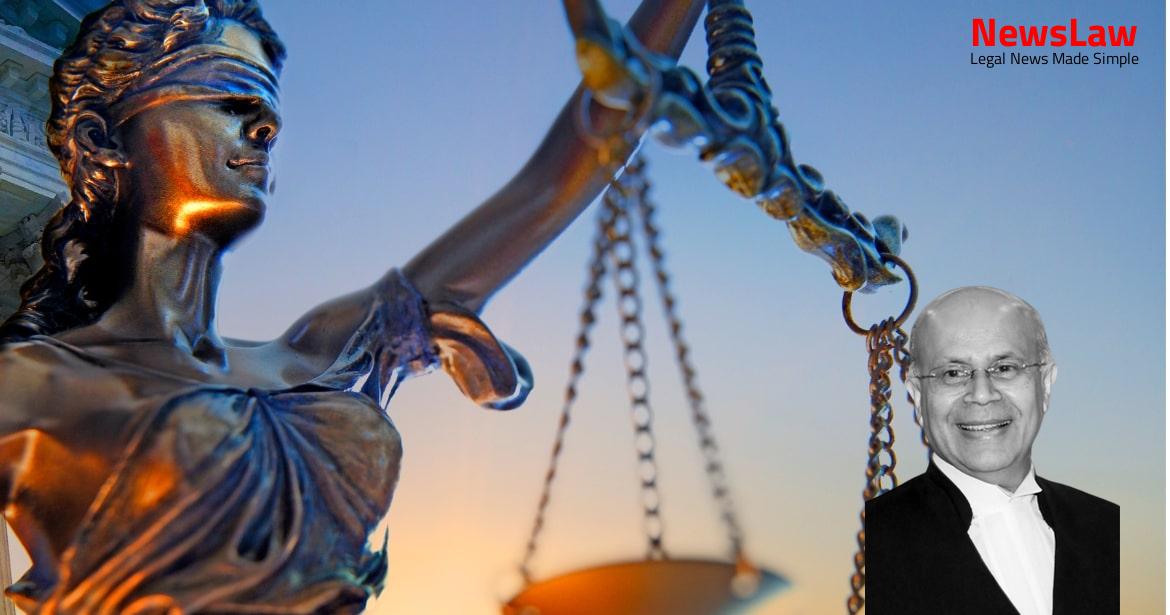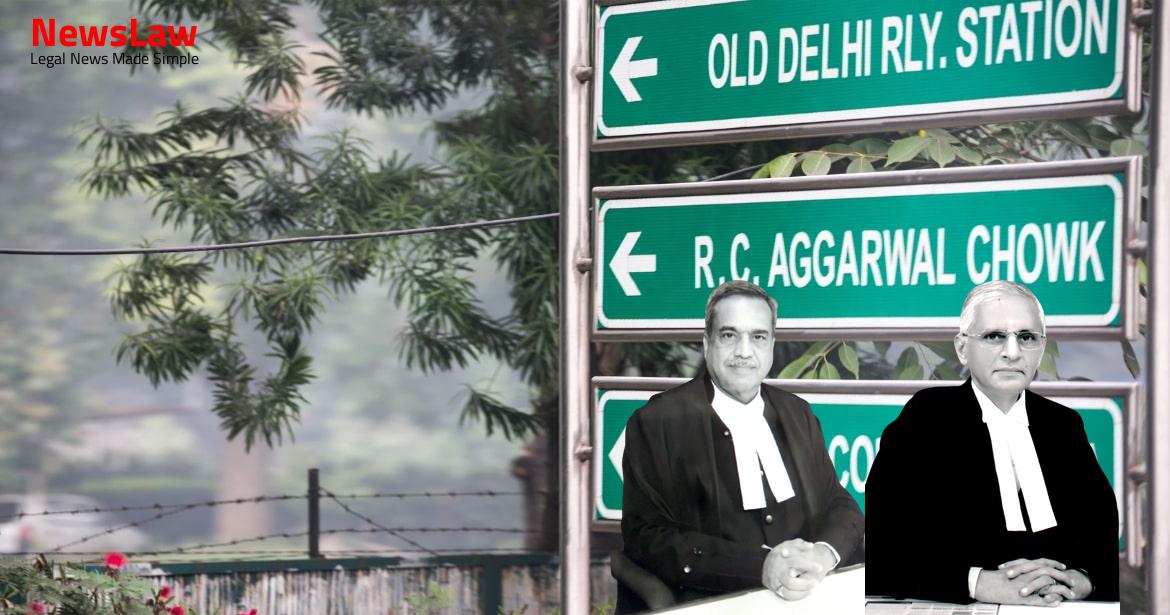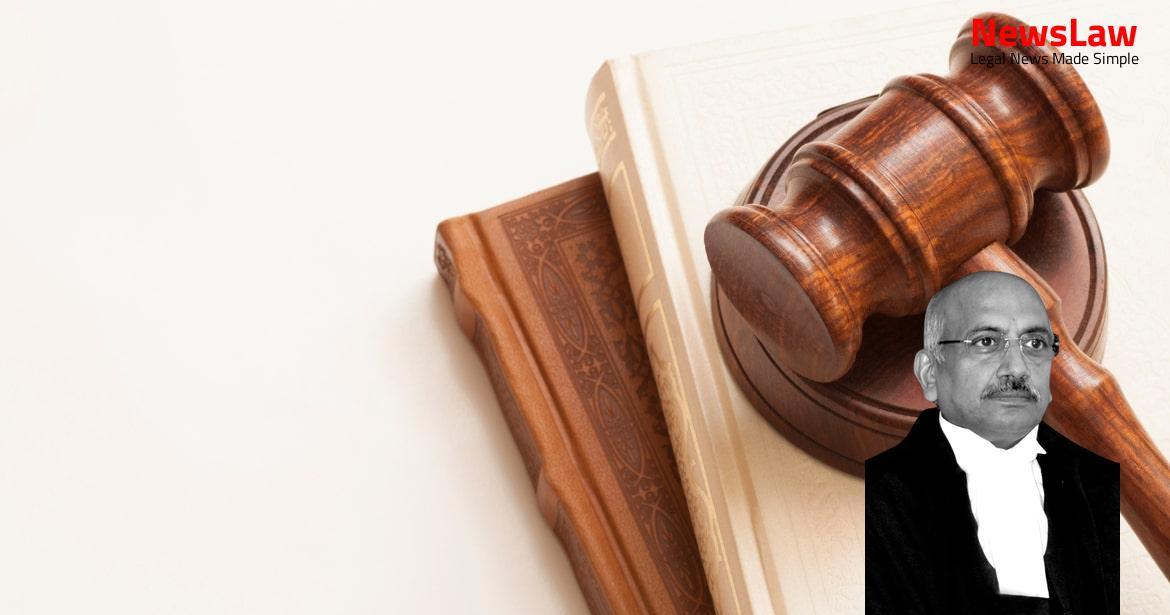In a recent legal case, the court delved into the complex process of assessing compensation in disability cases. The emphasis was on the court’s legal analysis, highlighting the need for a comprehensive evaluation of the impact of permanent disability on the individual’s earning capacity. This summary explores the crucial role of evidence and assessment in determining fair compensation for individuals with disabilities post-accident.
Facts
- The appellant suffered a physical disability of the left lower limb assessed at 75%, equivalent to 37.5% of the whole body.
- He required assistance to stand and walk, unable to use stairs, sit cross-legged, squat, or use an Indian toilet.
- Conveyance charges of Rs.10,000 were paid.
- The appellant underwent surgery resulting in amputation of his left leg above the knee.
- The appeal by the respondent Corporation was dismissed.
- The appellant’s daily income of Rs.300, totaling Rs.9,000 per month, was supported by evidence from his employer.
- The permanent disability, contrary to the treating doctor’s opinion, was wrongly fixed at 25% without adequate reasoning.
- The appellant suffered a commuted fracture of Tibia and Fibula, leading to shortening of the left limb and an active infection preventing social interactions.
- Amputation and an artificial leg were the only viable treatment.
- The appellant, a painter by profession, was rendered unable to work.
- The estimated cost of three future artificial limb replacements was between Rs.75,000 to Rs.1,50,000.
- The extent of disability was duly assessed and considered.
- Appellant awarded Rs.1,00,000 towards pain and suffering
- Rs.7,350 awarded for medical expenses
- Rs.21,000 granted for attendant charges
- High Court enhanced total compensation to Rs.5,10,350
- Compensation of Rs.2,31,000 for loss of future earning considered inadequate
- Rs.50,000 awarded towards future medical expenses
- Rs.25,000 granted for loss of amenities
- Physical functional disability of appellant assessed at 75% left leg and 37.5% total body disability
- High Court increased loss of earnings during treatment to Rs.66,000
- Total compensation awarded by Tribunal was Rs.4,08,850
- High Court raised monthly income of appellant to Rs.5,500
Also Read: Analysis of Intent in Fatal Assault Case
Arguments
- Shri Ashwin Kotemath, representing the appellant, argued that the compensation awarded by the High Court is insufficient and does not adequately reflect the severity of the injuries sustained.
- The appellant failed to substantiate the claimed income with substantive evidence.
- Shri S.N. Bhat, learned counsel for the respondent, submitted that the High Court reasonably enhanced the compensation.
- No interference is called for in the decision of the High Court.
Also Read: Ensuring Fair and Thorough Police Investigations: A Legal Perspective
Analysis
- Assessment of compensation for loss of earning capacity should not be solely based on the percentage of permanent disability.
- The impact of permanent disability on earning capacity must be individually assessed.
- Earning capacity may differ based on the individual’s profession and activities post-accident.
- In cases where percentage of loss of earning capacity is equivalent to percentage of permanent disability, that percentage can be adopted for compensation determination.
- Evidence and assessment are crucial in determining the loss of earning capacity and subsequent compensation.
- The Tribunal should consider the effect of permanent disability on the injured individual’s actual earning capacity.
- Three steps are involved in determining the effect of permanent disability on earning capacity.
- Reduction in percentage of physical disability without proper discussion or consideration of functional disability is not justified.
- Adequate compensation is necessary to ensure a dignified life for the appellant post-accident.
- While computing loss of future income, disability should be taken to be 68% and not 20% as done by the Tribunal and the High Court.
- Raj Kumar case supports taking disability as 68%.
- The appellant is severely hampered and perhaps forever handicapped from performing his occupation as a coolie.
- The High Court erred in granting only Rs.50,000 for future medical expenses.
- PW.3 stated the appellant would require three more replacements of the artificial left leg during his lifetime.
- Future medical expenses should be enhanced by Rs.2,50,000 in addition to what was granted by the High Court.
Also Read: Presumption of Genuineness in Legal Documents Case
Decision
- The compensation awarded by the High Court is modified and recalculated as under:
- Pain and sufferings: Rs. 1,00,000
- Medical expenses: Rs. 7,350
- Attendant charges: Rs. 21,000
- Loss of earnings during the period of treatment: Rs. 66,000
- Conveyance charges: Rs. 10,000
- Loss of future earnings on account of disability: Rs. 6,93,000
- Future medical expenses: Rs. 2,50,000
- Loss of amenities: Rs. 50,000
- Total modified compensation: Rs. 11,97,350
Case Title: SR. ANTHONY @ ANTHONY SWAMY Vs. MANAGING DIRECTOR KSRTC (2020 INSC 421)
Case Number: C.A. No.-002551-002551 / 2020



